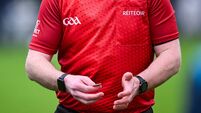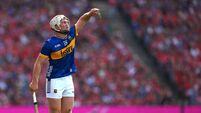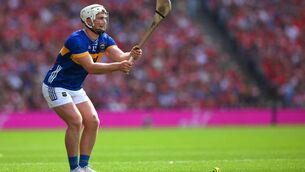Almost There
IN THE Village Inn, talk has turned to Clan na Gael. Until the people of Dunloy travel down, en masse, to their fourth All-Ireland final, this is where the final will be analysed and dissected, the community's only pub. And they know their history here.
Clan na Gael ruled Roscommon and Connacht football in the '80s, but failed five times at the final hurdle. No one team is chosen by the gods to win an All-Ireland. As Malachy Molloy, the man who will lift the Tommy Moore Cup later this afternoon if Dunloy finally secure it, says: "Newtown aren't going to give us the title on mere sentiment."














